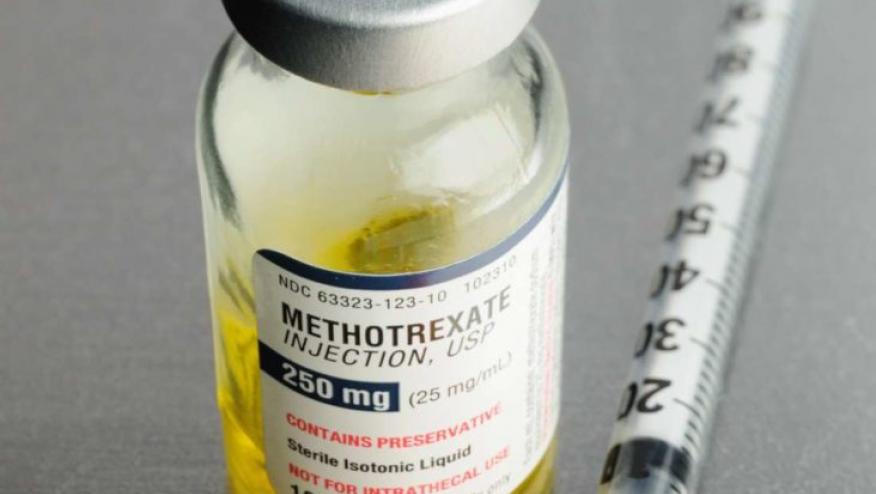Consensus Guidelines on Pediatric Methotrexate Use Save

Methotrexate (MTX) is commonly used in the treatment of pediatric inflammatory skin conditions, often for off-label indications. Consensus based recommendations were published to address 5 major subjects:
- indications and contraindications
- dosing
- interactions with immunizations and medications
- adverse effects, and
- monitoring.
An executive summary was put forth by a 27 member consensus that included pediatric and general dermatologists, pediatric rheumatologists, and participants from industry and patient advocacy groups.
Consensus statements were drafted based on the literature review and expert opinions and a modified Delphi process was conducted to achieve consensus (predefined as ≥70% of participants rating a statement as 7 to 9 on a 0 to 9 Likert scale). Overall there were 46 recommendations.
Some Caveats
- Lack of FDA approval does not preclude the use of MTX in pediatric patients with inflammatory skin disease
- MTX is useful for treating pediatric patients with morphea, psoriasis, dermatomyositis, atopic dermatitis, lupus, sarcoidosis, and alopecia areata, and for prevention of neutralizing antibodies associated with biologic therapy
Recommendations
Dosing
- Weight-based dosing was recommended for ease
- Maximum MTX dose varies widely, but for inflammatory skin disease the maximum dose is considered 1 mg/kg, not exceeding 25 mg/wk
- Parenteral administration of MTX likely results in higher bioavailability and may increase efficacy
- Test doses are not necessary for pediatric patients starting low-dose MTX for inflammatory skin disease
- Onset of MTX effect is often 8-12 wk for atopic dermatitis, psoriasis, and lichen planus but may be closer to 12-16 wk for alopecia areata and morphea
- MTX can be discontinued abruptly without adverse effects, other than risk of disease worsening
- Concomitant use of MTX and trimethoprim/sulfamethoxazole is not contraindicated
- NSAIDs or salicylates can be given concurrently with low-dose MTX in children with normal renal function
Adverse effects
- MTX adverse effects (gastrointestinal effects, oral mucositis, fatigue, and headache) are typically mitigated with folic acid supplementation
- Folic acid is recommended during treatment with MTX, and daily dosing of 1 mg/d is recommended over once-weekly dosing for most patients . 92 CIII
- The following information is pertinent in any patient on MTX with elevated liver enzymes: recent symptoms of viral illness, MTX dosing within 24 h prior to phlebotomy, recent administration of other medications (eg, acetaminophen), recent alcohol consumption
- MTX should be temporarily discontinued when liver enzymes lab results are ≥3 × ULN for 2 consecutive mo
- Discontinue or decrease the dose of MTX if total white blood cell count is <3 × 109/L, absolute neutrophil count is <10 × 109/L, or platelet count is <100,000/L
- Counseling and mitigation strategies regarding the risks of fetal loss and teratogenicity should be discussed and implemented for individuals of childbearing potential taking MTX
ADD THE FIRST COMMENT
Disclosures
The author has no conflicts of interest to disclose related to this subject










If you are a health practitioner, you may Login/Register to comment.
Due to the nature of these comment forums, only health practitioners are allowed to comment at this time.